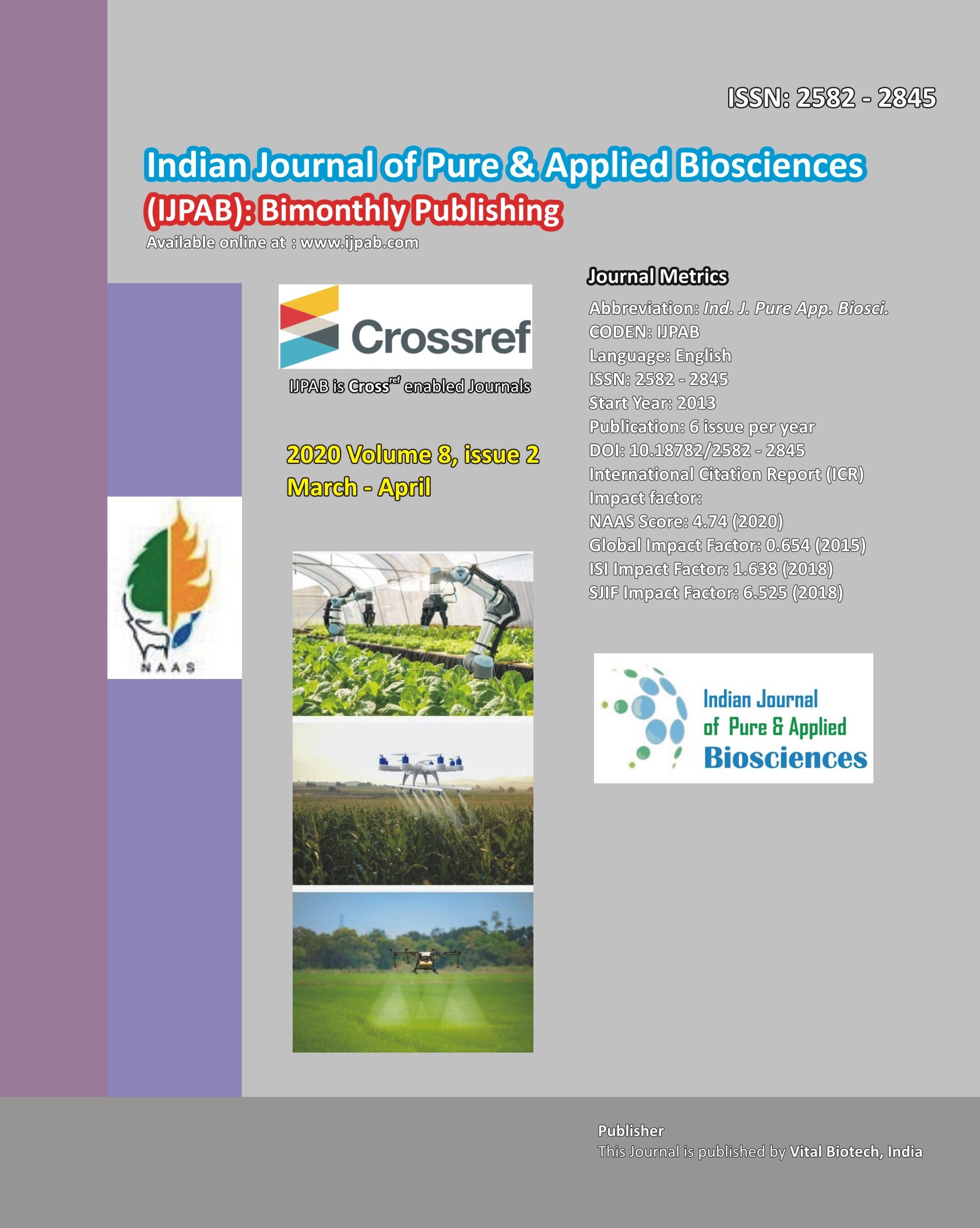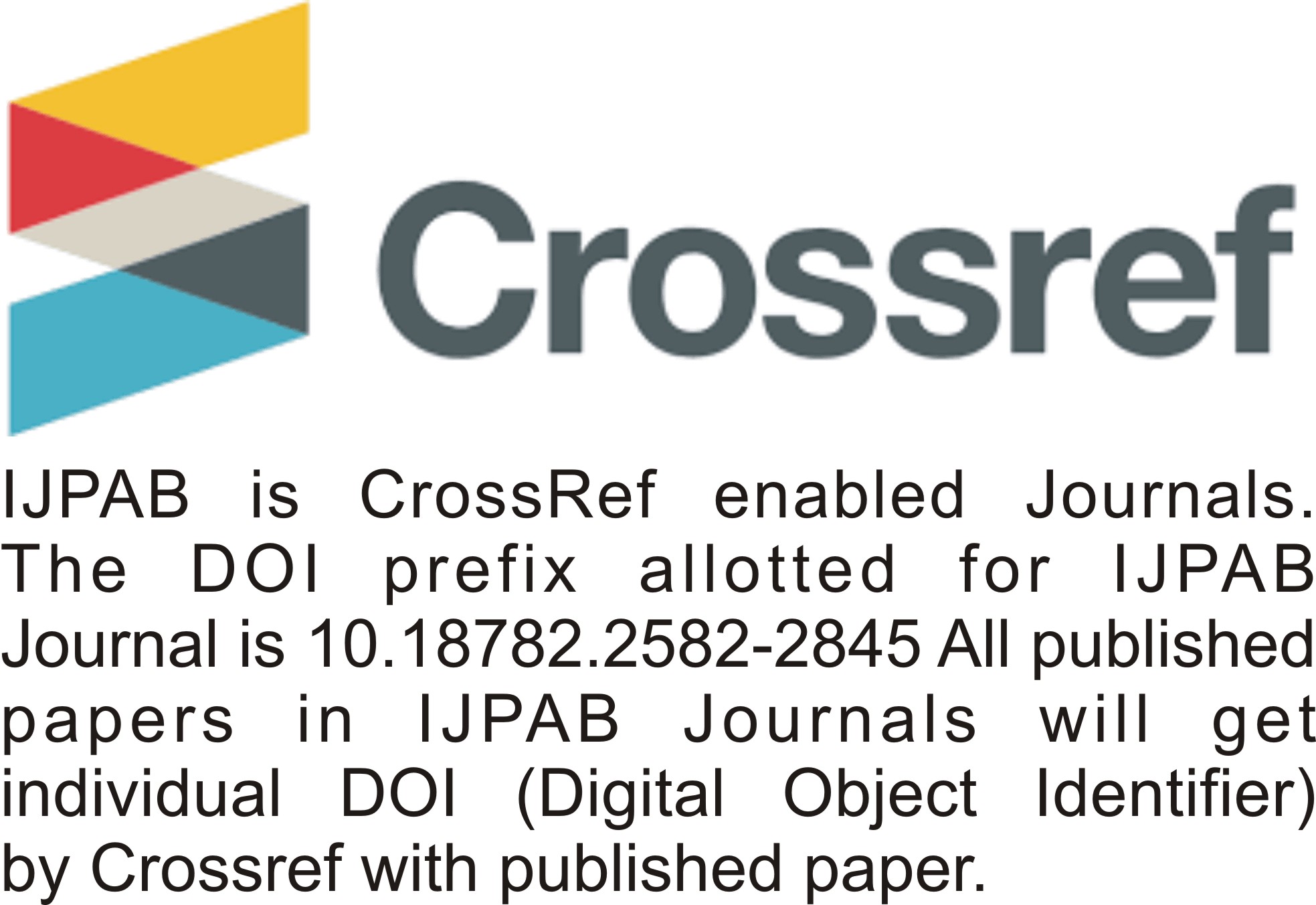
-
No. 772, Basant Vihar, Kota
Rajasthan-324009 India
-
Call Us On
+91 9784677044
-
Mail Us @
editor@ijpab.com
Indian Journal of Pure & Applied Biosciences (IJPAB)
Year : 2020, Volume : 8, Issue : 2
First page : (403) Last page : (409)
Article doi: : http://dx.doi.org/10.18782/2582-2845.8069
Productivity and Sustainability Enhancement of Moth Bean through Improved Technology of CFLD under Hyper Arid Partially Irrigated Zone of Rajasthan
M. L. Reager1, B. S. Mitharwal1, Upendra Kumar1 and C. K. Dotaniya1,2*
1Assistant Professor, Krishi Vigyan Kendra, 2Ph.D. Research Scholar,
Krishi Vigyan Kendra, Swami Keshwanand Rajasthan Agricultural University, Bikaner-334 006, Rajasthan
1,2ICAR- Indian Institute of Soil Science, Bhopal M. P. 462038
*Corresponding Author E-mail: drmadanagro@gmail.com
Received: 10.03.2020 | Revised: 16.04.2020 | Accepted: 24.04.2020
ABSTRACT
Field experiment on moth bean were conducted at farmers’ fields in villages viz., Benisar, Bhojas and Husangsar during Kharif seasons of 2016 and Dasuri during 2019 of Bikaner district in Rajasthan state to demonstrate production potential and economic benefit of improved technologies comprising sowing method, nutrient management and chemical weed control and adoption of whole package of practices for the crop. Pendimethalin as Pre emergence at 1.0 kg a.i ha-1 in 500 liter of water used for effective control of the weeds during kharif season. If the weeds emerge after planting, Imazethapyr @ 37.5 g a.i. ha-1 as post-emergence sprayed at 30 days after sowing.
Results revealed that improved technology demonstration gave higher and sustainable yield of moth bean over the years compared to farmers practice. The mean yield recorded (739 kg ha-1), which was 25.04 per cent higher as compared to farmers practice (591 kg ha-1). Sustainability of moth bean yield reflects the higher sustainability yield index (0.667) and sustainability value index (0.515). Improved technology possesses incremental benefit cost ratio (5.3) over farmers practice still there was an extension gap of 148 kg ha-1 seed yield, indicating that along with many move front line demonstrations there is a need to disseminate the improved technologies among the farmers with effective extension methods like training and demonstrations. However, the mean technology gap of 241 kg ha-1 seed yield clearly indicates that research efforts are needed in realizing the potentiality of the moth bean crop under hyper arid partially irrigated zone of Rajasthan.
Keyword: Moth bean, Sustainability yield index, Sustainability value index, Improved technology.
Full Text : PDF; Journal doi : http://dx.doi.org/10.18782
Cite this article: Reager, M.L., Mitharwal, B.S., Kumar, U., & Dotaniya, C.K. (2020). Productivity and Sustainability Enhancement of Moth Bean through Improved Technology of CFLD under Hyper Arid Partially Irrigated Zone of Rajasthan, Ind. J. Pure App. Biosci. 8(2), 403-409. doi: http://dx.doi.org/10.18782/2582-2845.8069

